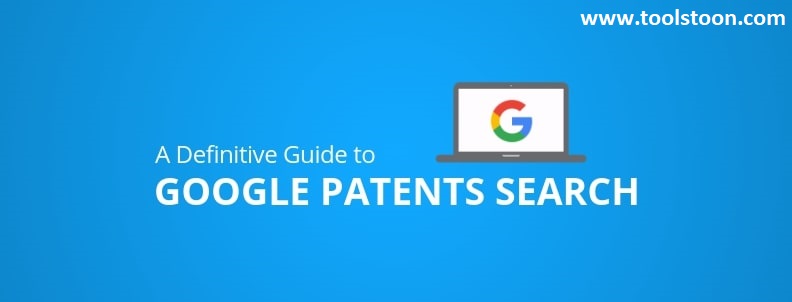No products in the cart.
SEO
Decoding 9 Game-Changing Google Patents of 2023: What They Mean for SEO Success
Last Updated on December 25, 2023 by Jeff Vardy
When exploring the latest Google patents from 2023, it’s crucial to discern between filed patents and actual implementation in Google Search. While a patent application doesn’t guarantee real-world application, tracking pending status across countries like the U.S., China, and Europe within the 12-month priority window provides insights.
1. Search Result Filters from Resource Content
Identifier: US11797626B2
Countries: U.S., China, Europe, Russia
Publication Date: October 2023
Concept Overview:
This patent introduces dynamic search query filters generated from resource content. The process involves data processing, keyword extraction, filter selection, and user interaction, enhancing the user-focused search experience.
SEO Implications:
– Prioritize diverse and relevant content creation. – Deepen keyword optimization for varied and relevant terms. – Align content with evolving user intents for enhanced engagement.
2. Evaluating an Interpretation for a Search Query
Identifier: US20230334045A1
Countries: U.S., China, South Korea, Europe
Publication Date: October 2023
Concept Overview:
The patent assesses human interpretations of search queries using two models, emphasizing search intent. It implicitly addresses search intent through human interpretations, search query refinements, and temporal and cluster features.
SEO Implications:
– Align content with likely interpretations of search queries. – Optimize for context and temporality for relevance. – Adapt to search refinements to enhance accuracy. – Leverage natural language processing for better visibility.
3. Providing Search Results Based on a Compositional Query
Identifier: US11762933B2
Countries: U.S., Europe, China
Publication Date: September 2023
Concept Overview:
Focused on delivering results based on compositional queries, this patent recognizes entity types, relative relationships, and contextual relevance within search queries, signaling a shift toward entity-based search.
SEO Implications:
– Optimize content for complex query handling involving multiple entities. – Focus on knowledge graph optimization for enhanced visibility. – Emphasize entity recognition for better categorization. – Prioritize contextual relevance in content creation.
4. Contextualizing Knowledge Panels
Identifier: US11720577B2
Countries: U.S., Japan, South Korea, China, Germany, Europe
Publication Date: August 2023
Concept Overview:
The patent enhances search engine results by contextualizing knowledge panels based on identified entities and context terms within user search queries.
SEO Implications:
– Prioritize entity-based optimization for enhanced visibility. – Create content aligning with user contexts and intents. – Optimize for knowledge graph inclusion. – Focus on providing contextually relevant information.
5. Systems and Methods for Using Document Activity Logs
Identifier: US20230267277A1
Countries: U.S., World Intellectual Property Organization (WIPO)
Publication Date: August 2023
Pending Status: Yes
Concept Overview:
This patent, currently pending, introduces using document activity logs for training machine-learned models to determine document relevance, emphasizing user interaction and behavior.
SEO Implications:
– Emphasize user interaction for document relevance. – Expand beyond traditional keyword-centric strategies. – Recognize the impact of user behaviors on document relevance. – Incorporate predictive modeling for effective B2B SEO strategies.
6. Query Composition System
Identifier: US20230244657A1
Countries: U.S., China, WIPO, Russia
Publication Date: August 2023
Pending Status: Yes
Concept Overview:
Focused on contextual search, this patent introduces a system using context clusters to simplify the search query process, aligning with user contexts and enhancing user experience.
SEO Implications:
– Prioritize content aligned with user contexts like location and time. – Understand and cater to probable context clusters for user intent. – Adapt to query less searches for relevant inclusion.
7. Combining Parameters of Multiple Search Queries
Identifier: US11762848B2
Countries: U.S., China
Publication Date: September 19, 2023
Concept Overview:
This patent streamlines online search by combining parameters of related search queries, providing a more nuanced, context-aware search process.
SEO Implications:
– Emphasize semantic relevance and context in SEO strategies. – Optimize for long-tail keywords and conversational queries. – Structure content for seamless inclusion in related queries. – Optimize for voice search scenarios.
8. Presenting Search Result Information
Identifier: US20230244657A1
Countries: U.S., China, WIPO, Russia
Publication Date: October 3, 2023
Concept Overview:
This patent introduces a method for presenting search results using content from web notebooks, emphasizing user-generated content and annotations for a personalized search experience.
SEO Implications:
– Emphasize user-generated content by SEO Tools. – Focus on personalization and contextual relevance. – Incorporate varied content types for a comprehensive approach.
9. Multi Source Extraction and Scoring of Short Query Answers
Identifier: US20230342411A1
Countries: U.S., Europe, WIPO, South Korea
Publication Date: October 26, 2023
Concept Overview:
This patent aims to enhance short answers by scoring candidate passages against context passages from multiple sources, emphasizing reliable and accurate information.
SEO Implications:
– Shift toward relevant, contextually accurate content. – Focus on comprehensive content for better context. – Emphasize accuracy in presenting information.
The Importance of Google Patents in SEO
Understanding Google patents is crucial for SEO practitioners, providing insights into challenges and trends. While not all patents translate into practice, they offer a rational layer that counter-checks subjective theories. SEO trends should balance practical experience with a solid understanding of crawling, indexing, semantic search, and the latest search engine technologies.


Wow superb blog layout How long have you been blogging for you make blogging look easy The overall look of your site is magnificent as well as the content
Ive read several just right stuff here Certainly price bookmarking for revisiting I wonder how a lot effort you place to create this kind of great informative website